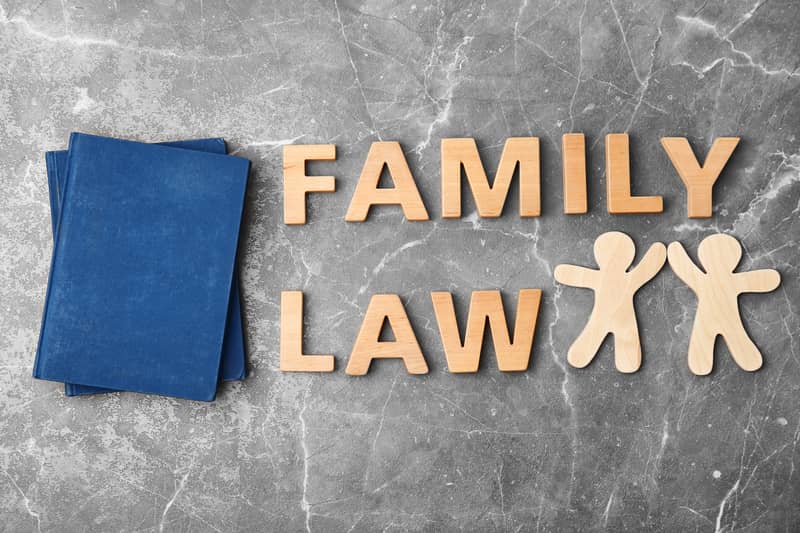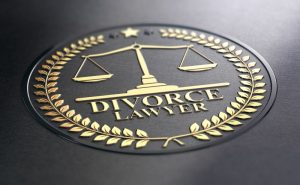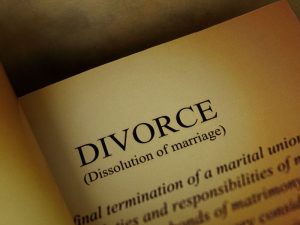
Equitable Adoption in North Carolina
The doctrine of Equitable Adoption is a judicially created “equitable” remedy that may, under very narrow circumstances, recognize a parent-child relationship in the absence of formal legal adoption.
recognize a parent-child relationship in the absence of formal legal adoption.
Under the doctrine, inheritance rights may apply as a matter of equity when and if the child’s parents die intestate and those parents intended to but failed to formally perform a legal adoption before passing away.
Such claims are closely scrutinized and rarely applied under the NC Adoption Laws – Bill Powers, Charlotte Family Law Attorney
The essential elements of the doctrine include consideration of things such as:
- Whether there was an agreement, implied or express, to adopt a child; and,
- Whether such agreement is relied upon; and,
- The natural parents’ performance in surrendering/giving up custody; and,
- The performance of the child, while living with the foster parents, and whether she or he (the child) acts as the foster parents’ child; and,
- Foster parents’ partial performance in taking the child at issue into the home and treating such child as their own;
- Whether or not the Foster Parent had a Will (intestacy).
North Carolina Law on Equitable Adoption
The NC Supreme Court in 1997 acknowledged the doctrine for the first and only time in Lankford v. Wright.
In Lankford, the biological mother gave birth to a child, but shortly after entered into a written agreement with her neighbors, to raise and adopt her.
What is Equitable Distribution?
The foster parents held her out as their child publicly in all respects. Unfortunately, they died without a valid will, thus seemingly making the NC Law of Intestate Succession applicable.
The NC intestacy statute applied, ostensibly preventing the Petitioner from receiving anything from the people she thought of as her mother and father.
The Petitioner sought a Declaratory Judgment regarding her status and rights of an alleged heir of the related estate.
The North Carolina Supreme Court granted Petitioner’s petition and sought to answer the question of whether the Doctrine of Equitable Adoption recognizes inheritance rights of a non-formally adopted child whose foster parents died intestate.
The Supreme Court created legal standing that had never before been recognized under either the Common Law or by the statute. Given the long history of North Carolina, that is truly remarkable – Bill Powers, Charlotte Family Law Lawyer
In so doing, the Court specifically limited the applicability of the doctrine to circumstances when a child was supposed to be adopted but the foster adoptive parents failed to formalize the adoption prior to their death.
The Court, attempting to narrow its opinion and creating new law, added that the doctrine “is limited to facts comparable to those presented” for “claims made by an equitably adopted child against the estate of the foster parent.”
Will the Doctrine of Equitable Adoption be expanded?
Probably not, at least not by the North Carolina Court of Appeals.
If appealed further, the NC Supreme Court may be asked to expand the application of the Equitable Adoption in Shearin v. Brown.
That doesn’t seem very likely given the fact-pattern in Shearin.
That matter involves a granddaughter seeking to be declared an heir of her biological—but not legal—grandfather.
Following her father’s death, Petitioner became very close with her biological grandfather, who publicly expressed to her an intention that she receive his assets someday.
The decedent passed away, intestate.
His obituary identified his biological granddaughter, the Petitioner, as his only grandchild.
The issue arose when a distant relative of the decedent applied for letters of administration for his estate and listed himself and a few others as the sole heirs to the Estate, rather than the biological granddaughter.
At the trial court, Petitioner claimed that she was the sole heir under North Carolina’s intestacy statutes by virtue of alleged equitable adoption of her father.
The Court in Sherin found, as a matter of law, the facts of the case at hand did not support a finding that Equitable Adoption should apply.
On appeal, Petitioner requested that the Court enlarge or otherwise expand the legal theory established in Lankford to allow for an adult to benefit under the theory of Equitable Adoption.
The NC Court of Appeals found in favor of Respondents citing the narrow application of the Lankford holding and the Court’s lack of “authority to redraw the boundaries of the doctrine as delineated in that decision.”
As the Court noted, the facts as presented did not show the Petitioner was taken into the home, as a minor, by the foster parent.
Tips from Charlotte Divorce Lawyers
The Petitioner was not raised by the foster parents from childhood, acting as if such child was a legally adopted son.
The Supreme Court in Lankford emphasized, the remedy is limited in instances to protect someone who was supposed to have been adopted by the foster parents.
The Court of Appeals further distinguished the Shearin case by stating that the majority of jurisdictions in the US that recognize equitable adoption have limited its application to claims made by an equitably adopted child against the estate of the foster parents, not the heir of an alleged equitably adopted child.
Learn More

Removal of a Child from an Unfit Parent
Chapter 7B of the Juvenile Code regarding Abuse, Neglect, and Dependency proceedings sets forth the procedures and  protocols for the removal of a child from an “unfit parent.”
protocols for the removal of a child from an “unfit parent.”
North Carolina law Section 7B-906.2(b) requires the Trial Court to include possible reunification of parent and child as part of an initial “permanency plan.”
N.C.G.S. Section 7B-906.1(e)(1) further requires the Court to make formal findings regarding whether it is possible for the removed child or children to be returned (placed) with the parent within six months of the hearing.
In providing for the protection of juvenile children the District Court Judge must necessarily consider their needs, including those providing for permanence, safety, and continuity – Bill Powers, Family Law Attorney Charlotte NC
Standards of Removal of Child from Parent
Standards for removal, if and when such is necessary and appropriate, are also set forth in Chapter 7B of the Juvenile Code.
The Courts are charged with the duty to prevent inappropriate or unnecessary separation of parents and their children.
Do I need a lawyer for Child Custody?
In the event the Trial Court deems it necessary and proper to remove a child from the custody of a parent, those Standards for Removal necessarily require a review hearing formally designated as a Permanency Planning Hearing.
Such Review Hearing must be set within one year (12 months) of the date on which the Initial Order was entered. N.C.G.S. Section 7B-906.1(a)
Concurrent Plans for Permanency
The Trial Court, in considering removal, must adopt something called a concurrent plan.
To that end, there must be both primary and secondary plans over the permanency planning process and stage of the proceedings.
What is Collaborative Divorce?
The Court, as is the case in all family law and CPS Child Protective Services matters in North Carolina, considers such issues in light of the best interests of the child or children at issue.
There are six “statutory plans” for permanency as adopted and directed by the North Carolina General Assembly.
Those include things like:
- Reinstatement of Parental Rights
- Adoption
- Guardianship
- Reunification with Parent(s)
Duties of the Court
The Trial Court, during the Permanency Planning Hearing, is required to adopt “concurrent permanent plans.”
The Trial Court (the District Court Judge in North Carolina) is mandated to identify both a primary plan and a secondary plan, subject to certain legal exceptions.
First Steps in Divorce in Charlotte
Reunification with a parent, either as a primary or secondary plan, is required including written findings of fact indicating:
- Efforts toward reunification would be consistent/inconsistent with the safety or health of the minor child (juvenile) OR
- Reunification efforts would clearly be unsuccessful
The Court is also required to Order the Department of Social Services (within the county of the issue) to make efforts to finalize the primary and secondary permanent plans.
The Court may additionally specify efforts that are reasonable to achieve permanence for the juvenile in a timely manner.
In Re N.A.
The North Carolina Court of Appeals, in the unpublished opinion In Re N.A. (2021-NCCOA-2), addresses the issue of Findings relative to a primary and secondary permanency plan.
Therein the Court affirms that the NC Juvenile Code (NCGS Chapter 7B) equires the trial court to include reunification when it determines the Permanent Plan for the first time as either a primary or secondary plan.
Writing on behalf of the Court, Judge J. Hampson makes clear,
Reunification must be part of an initial permanent plan.
The General Assembly in Chapter 7B requires, regarding a reunification plan, “presupposes” a prior concurrent plan existing including reunification.
Legal Issues involving Divorce with Children
As part of the initial permanency plan, reunification is required and is not otherwise limited by procedural circumstances.
Therefore, if there has been no prior concurrent plan including reunification with a parent, a Permanency Plan Hearing must necessarily include, at least in part, reunification as part of the permanent plan.
A parent may be deemed, as a matter of law and fact, not a fit or proper to provide for the control of the juvenile, custody, or care of the juvenile child(ren).
If reunification has not previously been a primary or secondary aspect of the Court’s consideration, the Court must thereafter do so.
N.C.G.S. Section 7B-906.1(e)(1) mandates the Trial Court, in legal proceedings where the parent is not reunified with the juvenile child, make findings regarding whether or not it’s possible for the juvenile to be placed with a parent (within six months).
The Court, as part of any such finding(s) must also set forth with some level of specificity why, considering the juvenile’s Best Interests, cannot be returned to the parent.
Charlotte Family Law Attorneys – Powers Law Firm PA
Family Court matters, including those within the Court’s jurisdiction under Chapter 7B of the Juvenile Code, deserve careful consideration of the law and facts.
Family law issues involving juvenile children, we believe, are best reviewed holistically. Chapter 50 Divorce Proceedings in Charlotte involving DSS merit close scrutiny – Child Protective Services – Bill Powers, Charlotte Divorce Lawyer
If you have legal questions about your rights and duties as a parent, specifically those involving Best Interest issues, please call the divorce lawyers and family law attorneys at Powers Law Firm PA.
Consultation fees for such legal matters apply. Prior to discussing your legal matter, our Charlotte law firm confirms availability for legal representation.
Learn More
Domestic Violence and the LGBT+ Community
According to the National Coalition Against Domestic Violence, LGBT+ persons are more likely to experience rape, physical violence, or stalking than heterosexual persons.
43.8% of lesbians and 61.1% of bisexual women have experienced rape, physical violence, or stalking by an intimate partner at some point in their lifetime, as opposed to 35% of heterosexual women.
26% of gay men and 37.3% of bisexual men have experienced rape, physical violence, or stalking by an intimate partner in their lifetime, compared to 29% of heterosexual men.
Despite that, the lack of apparent filings appears to indicate LGBT+ persons are less likely to seek protection or assistance, even when those protections and services are available to them.
Some victims of domestic violence fear something more than their abuser. They dread public scorn, ridicule, and bias – Bill Powers, Charlotte Domestic Violence Lawyer
Fear of Bias
In addition to the stress and anxieties of experiencing domestic violence, the pressure of being outed or having one’s sexual orientation or gender identity revealed can cause survivors not to seek assistance for fear of being labeled as a member of the LGBT+ community.
According to a 2013 study of male same-sex couples from the National Coalition of Anti-Violence Programs, only 26% of men called the police for assistance after experiencing near-lethal violence.
Additionally, in 2012, less than 5% of LGBT+ domestic violence survivors sought protective orders.
In North Carolina, same-sex couples have some protections when a relationship turns abusive or violent.
The NC Domestic Violence laws authorize a victim to seek a domestic violence protective order (DVPO), which protects domestic violence survivors from unwanted contact and many other protections such as removing the abuser from a shared home, prohibitions against possessing firearms, and temporary custody of minor children.
Specific categories of people can apply for a DVPO in North Carolina under Chapter 50B-1(b) of the North Carolina General Statutes:
- Current or former spouses
- Persons of the opposite sex who live together or have lived together
- Persons related to one another as parents and children
- Persons who have a child in common
- Current or former household members
- Persons of the opposite sex who are in a dating relationship or have been in a dating relationship. For purposes of this statute, a dating relationship is one wherein the parties are romantically involved over time and on a continuous basis during the course of the relationship.
Unfortunately, LGBT+ persons who are or were in a dating relationship are not specifically enumerated within Chapter 50B. Under a strict reading of the statute, individuals may not be able to apply for a DVPO.
However, change may be on the horizon.
A 2019 case involving a same-sex couple in Wake County has been appealed to the North Carolina Court of Appeals that may remove these exclusions for dating same-sex couples, giving all people Equal Protection under the law, as well as Due Process rights.
Domestic Violence Protective Orders
There are internal inconsistencies in the statute, causing potential problems for LGBT+ couples who are not legally wed.
LGBT+ persons who are or were married may apply for a DVPO since the law does not require spouses to be of the opposite sex.
What should I do if I’m a victim of Domestic Violence?
Until the case is resolved, LGBT persons who are survivors of domestic violence should seek medical attention for any injuries inflicted during the abuse and catalog those injuries.
Any other proof of abuse or violence, physical or otherwise, should likewise be kept.
What happens if a Restraining Order is Violated?
While DVPO’s may not be available to all LGBT persons in abusive or violent relationships, other avenues exist to end contact with the other person, such as having criminal charges brought against the other person.
North Carolina also provides for other forms of Restraining Orders and other “Civil No-Contact Orders,” such as the protections set forth within N.C.G.S. 50C.
If the survivor of domestic violence should seek a DVPO or other legal action against an abuser, they should likewise seek an experienced attorney to assist them in that process.
Charlotte Domestic Violence Lawyers
At Powers Law Firm PA we have years of experience handling North Carolina domestic violence cases and matters concerning DVPOs.
Same-Sex Marriage in North Carolina
We believe in assisting all persons with their legal issues, no matter their sexual orientation or gender identity.
Domestic violence is a difficult and serious matter, often taking a physical and emotional toll.
We encourage victims of Domestic Violence to stand up to their abuser, consider hiring a knowledgeable domestic violence attorney in Charlotte who can help you get a DVPO or consider other options to keep you safe.
With the growing acceptance and prevalence of same-sex couples, it is becoming clear that domestic violence protections will in all likelihood be extended to LGBT +individuals to the same nature and extent as heterosexual counterparts.
Learn More
Tips for Virtual School – Online Learning
 Virtual School and Online Learning is new to just about everyone in Charlotte.
Virtual School and Online Learning is new to just about everyone in Charlotte.
It’s OK if you’re a bit stressed out.
There’s frankly a lot to juggle between work, household chores, and maintaining some semblance of a schedule.
The reality of school closures and dealing with the Coronavirus is setting in.
CMS has in effect pressed parents into service as “co-teachers” in a virtual learning environment.
If you’re having marital problems, considering separation or divorce, anxiety about teaching kids at home is entirely normal, if not to be expected.
There are some steps and plans to put in place that may help.
This hasn’t happened before
We are all, at least to some extent, creatures of habit.
Establishing a daily routine can be soothing.
It may help to be thoughtful in setting up certain rules for virtual learning, thereby avoiding creating the opportunity for bad habits.
Kitchen table, ‘virtual learning’ isn’t necessarily a bad thing. The key is to set parameters, removing distractions as much as possible – Bill Powers, Divorce Lawyer
With the continued closures of schools, restaurants, churches, and remote workplace arrangements, we are all dealing with the unfamiliar.
The new normal is anything but normal. It can be downright discombobulating.
Starting the new Charlotte Meck school year on-line, with its occasional start-up glitches, it’s important to be mindful that there will be an adjustment period.
It also may be necessary to set certain parameters, including workspace zones, areas of separation, quiet places, and tear down goals to convert the kitchen table from school to the place to gather and eat a family.
Virtual classes and schoolwork
Most people go into the profession of education voluntarily.
Educators go to school, study hard, and obtain a teaching certificate because they love working with kids and helping people learn.
CMS Virtual Learning Information
Many later go on to receive a Master’s degree and/or Doctorate in education.
It’s a passion.
Classroom teachers feel chosen, led to the profession.
I’ve never understood why teachers don’t get paid more. I suspect many parents now share in my belief that they deserve a big-time raise – Bill Powers, Charlotte Collaborative Lawyer
Don’t reinvent the wheel. It makes sense to talk to friends, family, and neighbors about what works.
Reach out to people, call them, post on social media, exchange ideas about how to keep kids focused. Ask questions:
- What’s the best way to keep children engaged?
- How do you address special needs or learning styles?
- Are there better technologies or ways of doing things?
- What are the potential problem areas to anticipate and avoid?
- What works?
- What doesn’t work?
Collaboration is key.
Reach out to your child’s teacher. Social distancing results in, well, distancing, and separation from others.
We don’t always realize how important personal interaction is in educating children.
Seeing your teacher at “drop off” or at school events, if even for a short while, is part of the education process.
That’s clearly lost with virtual and remote learning.
Teachers probably don’t enjoy the virtual education process either.
They like kids.
They enjoy and thrive through interaction with others.
And they weren’t necessarily trained to teach by video.
If you have questions or concerns, talk to your child’s teacher. Share both concerns and successes.
Tell them the issues you encounter at home. Ask for advice and possible resources. Seek out their opinions.
And probably most importantly, thank your teacher.
Tell them how much you appreciate them.
Maybe share you did not fully realize how hard their job is until you tried doing it yourself.
Establish routines.
Normalcy and regular patterns help in organizing the process of educating your loved-on.
Focus on the positives. Virtual learning can be more efficient. It may allow for less “slack time” or time wasted administering education such as “bio breaks,” rest periods, and putting seats in chairs.
Establish a designated “workspace” for members of the family.
Be intentional about it.
Require the learning area to be organized, free from clutter.
If it’s the kitchen table, remove everything including seemingly innocuous objects like salt-and-pepper shakers, centerpieces, and anything not related to doing school work.
Create a checklist of items:
- Pen
- Pencil
- Book
- Homework
- Laptop
- Internet Connectivity
Charlotte Child Custody Information
Learn More

What kind of lawyer do I need?
 “What type of lawyer are you?” That’s a common question lawyers get from people they meet.
“What type of lawyer are you?” That’s a common question lawyers get from people they meet.
Attorneys in smaller jurisdictions may answer, “I do a little bit of everything,” or “I’m a general practitioner.”
In big-city Charlotte and Mecklenburg County, responses to that same question may include “criminal defense lawyer” or “family law attorney” or “corporate counsel.”
Lawyers in Charlotte tend to limit and define their professional practices by types of legal matters.
Frankly, I think that’s a shame. Small town North Carolina gets in right. That’s especially true if the legal issue involves divorce, children, and other marital problems – Bill Powers, Divorce Attorney
How is it that the former President of the North Carolina Advocates for Justice, and well-known “Charlotte attorney,” has come to that conclusion?
What do “divorce lawyers” do?
Here’s a little known fact, even among legal professionals.
In providing legal services, lawyers who handle matters involving custody, divorce, ED (equitable distribution), and marital unfaithfulness, while they may refer to themselves as “divorce lawyers,” actually do a lot of different things.
They must be prepared to handle an incredibly diverse range of different legal issues.
I have been practicing law since 1992. I’ve litigated many different types of cases. I’ve handled murder charges, personal injury claims, and real estate closings. I’ve drafted wills and powers of attorney. Nothing in my humble opinion is more potentially complicated than a divorce with children – Bill Powers
Our law firm prefers to focus on the individual legal need and the client, rather than practice-group designations.
We refer to ourselves as courtroom lawyers and litigators.
And to do that, Bill Powers has traveled extensively throughout North Carolina to help people with a wide range of different legal needs.
What is “family law” anyway?
Lawyers in Charlotte who refer to themselves as “family law attorneys” don’t take every case or client who walks through the door.
It’s not that they are bad people or unwilling to help.
The vast, vast majority of attorneys I know are compassionate people, dedicated to helping others. Indeed, people go into law because of their passion to make a difference – Bill Powers
As such, if a lawyer declines to accept your case for representation, they may be inexperienced or simply don’t enjoy certain aspects of handling those particular types of legal issues.
That’s OK.
In fact, it’s more than OK. It’s downright professional.
Straight Tips From a Charlotte Divorce Lawyer
Lawyers must be competent to handle a legal matter.
That’s one of the first rules of being a lawyer.
If a lawyer tells you they want to refer you to another attorney for all or part of a case, don’t take offense.
It’s likely not you; chances are they are actually a really good attorney.
It’s both ethical and professional to look out for your best interests rather than take a case that doesn’t fit a particular skill set.
The best lawyers I know aren’t afraid to admit someone else may be a better fit or more experienced to handle something – Bill Powers
The value of practical experience and institutional memory
We are resolute in our belief that no two cases are exactly the same.
While there may be certain similarities in case files, your circumstances, and individual needs, are truly unique.
Divorce often involves careful consideration of several different types of law or areas of practice.
It can be a difficult thing indeed to find an attorney with any level of experience willing to take on a heart balm case involving allegations of “Criminal Conversation” and “Alienation of Affection.”
If you own a home with someone, transferring title to real estate may be necessary as part of getting divorced.
If you have a retirement plan (401K, IRA – Individual Retirement Account, pension plan, savings incentive match plan, etc.), the execution of a QDRO – Qualified Domestic Relations Order is likely appropriate.
If you own a business or a fractional share of a company, it helps to know when to bring in a financial planner or forensic accountant for professional advice.
Some lawyers love being in the courtroom, litigating.
Others only work with collaborative law matters, never seeing the inside of a courtroom or arguing a case to completion.
Prior experiences, both good and bad, very much direct my legal advice and what I think is best for a client. Given the number of different types cases I’ve handled across North Carolina, we bring a fair amount of institutional wisdom and common-sense to the process.
Call Attorney Bill Powers now to schedule your consultation.
Legal consultations for divorce, child support, equitable distribution, visitation, etc., (“family law legal issues”) involve a consultation fee and hourly rates. That is different from other types of cases our law firm handles.
For example, we do not charge consultation fees for DWI charges or other criminal charges in North Carolina. Similarly, we do not charge hourly rates or establish a consultation fee for car accident cases or other “personal injury” matters.
NC Divorce Laws – Topics of Interest
- The First Step in Divorce
- No-Fault Divorce in North Carolina
- What is Collaborative Divorce?
- When should I hire a Divorce Lawyer?

When should I hire a Divorce Lawyer?
 Sometimes married couples who plan on getting divorced think it’s a good idea to settle-up with a spouse and then retain a lawyer to draw up the necessary paperwork.
Sometimes married couples who plan on getting divorced think it’s a good idea to settle-up with a spouse and then retain a lawyer to draw up the necessary paperwork.
Clearly, it’s preferable to be reasonable and proceed in good faith in dealing with your spouse, particularly in instances where the marriage has fallen apart but the respective parties still care for one another.
Marriage offers an economy of scale that extends beyond just tax rates, deductions, and claiming eligible dependents.
Legal Separation and dividing a household often involve substantially increased living expenses.
Establishing and maintaining two separate households on the same income, especially when children are involved, can result in expenses that are in fact more than doubled.
It’s therefore understandable some might think they’re saving money by “working things out” in advance without the participation of legal counsel.
We understand short-term cash flow may be an issue.
At the same time, you worked hard for your house, retirement, 401K, and other personal and marital assets.
You should protect them.
Getting divorced is a major life event.
While an attorney is not required to prepare a Separation Agreement or to even file for divorce in North Carolina, once certain documents are executed and/or filed, some mistakes cannot be fixed – Bill Powers
If you don’t know what QDRO stands for (qualified domestic relations order) or what happens if you fail to timely allege a claim for Equitable Distribution, we urge you to consult with an experienced divorce lawyer in Charlotte.
I did some research on Google
The Internet can be a helpful source of information, at least during the formative stages of a divorce.
If nothing else, on-line research can get you up-to-speed on some of the important terms and general precepts of getting divorced in North Carolina.
Unfortunately, there is a tremendous amount of either misleading or incorrect “free advice” out there.
It is our considered opinion that self-help forums and purportedly “simple online divorce forms” involving post-separation support, child custody agreements, alimony, and Equitable Distribution are problematic at best.
Indeed, executing (signing) some agreements without the advice of a lawyer can have long term, negative, and irrevocable consequences.
It’s imperative to have a thorough understanding of your assets and the true value of the “marital estate.”
That often necessitates a review of bank records, real property valuation(s), mortgages, taxes, and the NC Child Support Guidelines before negotiating or agreeing to terms of separation.
Marriage by its very nature involves a comingling of assets.
Separating and distributing assets, hopefully without harming or reducing their value or incurring substantial financial penalties, can be a challenging if not vexing process.
We believe good decisions are predicated on having accurate, complete information.
That applies to both financial records and protecting your individual legal rights.
Some people tell their spouse, “I want a divorce,” not fully understanding the full range of consequences and how truly complicated determining child visitation, support, and distribution of assets can be.
“The financial aspects of ending a marriage are a common source of conflict and can be as troublesome as settling any hotly contested dispute in court – Bill Powers, Mecklenburg Divorce Lawyer
Before doing anything, perhaps even before telling your spouse you want a divorce, we think it’s important to fully understand your legal rights relative to your particular marriage.
You and your marriage are unique
Contrary to what some might think, one size does not fit all.
That is especially true regarding divorce in North Carolina.
Marital circumstances are rarely exactly the same from one marital relationship to another.
If that weren’t the case, it wouldn’t matter who you married.
What is important to you, how you raise your family, your faith, spending habits, and where you live might not mean a hill of beans to anyone else besides you.
That might even be true for your spouse.
There are reasons people get divorced.
As such, the advice of friends and family, as well-meaning as it may be, is all too often inapplicable to your individual matter, your financial condition, your personal concerns, needs, and circumstances.
It also may be flat out wrong and directly contrary to the divorce laws in North Carolina.
Even close friends and family often do not fully share the intricacies, difficulties, and nuances of their marriages.
Suffice it to say, some things better go unsaid.
Experience shows, those “embarrassing” and “unsaid” issues can be the reason for the divorce in the first place and possibly a point of contention in the future.
Friends and family also may feel it more important to support you and your feelings, rather than be brutally honest regarding certain issues and human frailties.
They also may not have all the facts or a full understanding of what the law is, rather than what they think it is or should be.
One of the benefits of the attorney-client privilege allows for complete disclosure of all the facts and circumstances of a divorce.
“You should tell your divorce lawyer the whole truth, even if it might be a bit embarrassing. Our job is to provide sound legal advice, not to judge you” – Bill Powers
Legal Reference Materials: Separation, Support, Custody, and Divorce
- What does Absolute Divorce mean?
- What does Joint Custody mean?
- What am I entitled to in a Divorce?
- How long does it take to get Divorced in North Carolina?
- Child Custody and Visitation During the Coronavirus
- NC Divorce Laws

Child Custody and Visitation During COVID-19
 Child Visitation in North Carolina
Child Visitation in North Carolina
The Coronavirus and COVID-19 changes how we live day-to-day.
That involves more than just grocery shopping, doctor visits, and going to work.
Parents of children subject to a Child Custody Order or other negotiated Consent Orders are working through school shutdowns, social distancing, and lack of work-related-childcare.
Well-intended, historically sound methods and terms of visitation are being tested during the Coronavirus outbreak – Bill Powers, Charlotte Family Law Attorney
Goals of Parenting Plans and Child Custody
The “polar star” in North Carolina Family Court, relative to child custody, visitation, and support issues is the Best Interest of a minor child or children.
Child Custody requires stability and consistency.
Reasonable minds may differ in determining what indeed is in the best interests of the child.
Indeed, the fact is a fair number of people both in North Carolina and nationwide do not agree with the “best” method to deal with the Coronavirus.
One must ensure the best interests of children and follow directives of the Governor as well as the advice of healthcare professionals – Bill Powers
Families should work together and proceed reasonably in enabling the purposes and intent of Child Custody Orders and parenting agreements.
If consensus cannot be found, the NC Custody Mediation Program may a viable resource to help resolve disputes.
Chapter 50B – Protective Orders During COVID-19
Custody Orders pursuant to an “DVPO” or “Domestic Violence Protective Order” may add a level of complexity to an already complicated family law legal issue.
If you have a legal question regarding a 50B Order or other child custody issue, our Charlotte family law attorneys recommend you consult with an attorney.
Call your attorney before proceeding forward. If you don’t have a lawyer, retain legal counsel immediately.
Lawyers and law offices are deemed “essential professional services” and are imperative to the administration of justice in NC.
Many, if not most, divorce lawyers in Charlotte remain open for business and/or legal consultation even with Mecklenburg County courts largely closed.
Our office is open and helping people with their family law questions – – Bill Powers
Given safety concerns, we are “meeting” clients via secure video conferencing, telephone appointments, and other remote-access formats.
Violation of a valid 50B Order is a Class A1 Misdemeanor in North Carolina, subjecting the offender (the Defendant) to up to 150 days in jail.
Failing to comport with any Court Order relative to child custody, child support, or visitation may also result in sanctions by the Court for contempt proceedings.
Does the Stay at Home Order affect Visitation and Child Custody?
Non-essential travel in North Carolina is precluded by Governor Roy Cooper’s “Stay at Home Order” as issued on March 27, 2020.
Travel for child custody and visitation is authorized under the Order Section 1 – Stay at Home, 3(viii) Place of Residence:
To return to or return travel between one’s place or places of residence for purposes including, but not limited to, child custody or visitation arrangements – NC Stay at Home Order
Mothers and Fathers should continue to comply with all Custody Orders and Parenting Plans while they remain in legal effect, unless directed and/or Ordered by Judicial Order, other executive order, or supplemental Governor Orders.
Parties, as directed in the statewide Stay at Home Order, must also comply with any greater restrictions as set forth in local orders:
- Mecklenburg County Stay at Home Order
- Stay at Home Information for Union County NC
- Iredell County COVID-19 Information
- Gaston County NC Stay at Home Order
Travel between states for custody and visitation may be subject to restrictions. Before traveling to and from North Carolina, parents should research travel restrictions.
Custody Rights and COVID-19 Preventative Measures
Parties with visitation rights, custody rights, and parents should take special care to stay informed of and comply with recommendations regarding caring for children made by the Centers of Disease Control and Prevention or “CDC.”
Do not rely on local or national media coverage in decision-making relative to child custody and care protocols. NC Family Court Judges will likely default to scientifically based, official CDC protocols, not what the ‘talking heads’ on TV may opine – Bill Powers, Charlotte Divorce Lawyer
Denial of Parenting Time or Custody
In-and-of-itself, the Coronavirus and possible contagion of the novel COVID-19 virus likely is NOT a legally viable reason to deny parenting time and/or visitation.
Unless deemed otherwise by a Family Court Judge, parents deemed “fit” to care for and make decisions in the best interests of their child or children while those children are in their care.
Day-to-day care and decision making authority must comply with federal, state, and local health directives including hygienic health measures, social distancing, and travel.
Charlotte lawyers who handle Child Custody and Visitation
If you live in Charlotte-Mecklenburg have legal questions regarding a family law legal issue, we strongly recommend you consult with an attorney.
Each case, like constitutes a family-unit is different and unique.
Do not rely on gut instincts or what well-meaning friends and family may say.
Retain legal counsel before proceeding forward.
The Charlotte-based Powers Law Firm PA may be able to help.
Prior to speaking with a family law attorney at our firm we will conduct a “conflicts check.”
Consultation fees DO APPLY for all legal consultations regarding separation, divorce, custody, visitation, et al.
Learn More
Divorce Day
 Nationwide, January 6, 2020 has been informally designated as “Divorce Day.” Charlotte divorce lawyers anticipate a sharp increase in call volume immediately following the holidays.
Nationwide, January 6, 2020 has been informally designated as “Divorce Day.” Charlotte divorce lawyers anticipate a sharp increase in call volume immediately following the holidays.
While it may be popular to call it “Divorce Day,” in North Carolina, it might be better entitled, “Divorce Year.”
In part that is because the NC divorce laws, with certain exceptions, ordinarily mandate a minimum period of separation of 12 months before filing for divorce is authorized under the law.
Filing for divorce tends to slow down before Thanksgiving. Planning for separation and divorce spikes at the beginning of every new year – Bill Powers, Charlotte Divorce Lawyer
There are important legal filings and contractual agreements in the period leading up to the formal entry of a divorce order.
That may include things like:
- Post Separation Support (formerly referred to as temporary alimony)
- Child Custody
- Child Support
- Separation Agreement
- Living Arrangements
- Asset valuation
- Equitable Distribution
- Transfer of Real Property and Marital Assets
Separating a marital estate can be complicated.
Even with the most modest of assets, it tends to be a time-consuming process.
What is the first step to getting divorced?
That’s a great question and one we wish more people would ask themselves before taking certain actions.
Unless there is some sort of abusive behavior necessitating the institution of safety measures or a 50B protective order, we generally do not recommend packing up and moving out. There are important legal rights relative to divorce that deserve careful consideration before action – Bill Powers, Divorce Attorney
We strongly recommend you speak with an attorney before doing anything. Timing and preparation can be key.
It also may prove to be a better financial decision to proceed with caution, gathering important documentation and information before saying, “I want a divorce.”
There are generally consequences to actions in family law cases. Prior to making any major, life-changing decision, we recommend you speak to one of our Charlotte divorce lawyers.
Whether it is our law firm or another located in Mecklenburg County, proceeding in haste can make the process unnecessarily expensive, adversarial, and emotionally taxing.
How much do lawyers cost for divorce?
Retaining a divorce attorney in Charlotte may be a bit different from your prior experiences with lawyers.
First, unlike traffic ticket lawyers or attorneys who handle minor criminal charges, there often is an initial consultation fee.
Divorce lawyers in Mecklenburg County (at least at our law office, the Powers Law Firm PA) bill hourly.
Some attorneys also require some sort of retainer. That may involve something called a True Retainer to reserve their legal services. A True Retainer is earned immediately and is not billed against.
A true retainer is paid to ensure the availability of the divorce lawyer. It also may serve to prevent legal representation to an adverse party in the separation and divorce.
Legal fees predicated on hourly work, as earned, are separate and apart from the True Retainer.
Other law firms require a retainer to be held in trust, from which legal fees are billed on a periodic basis.
At Powers Law Firm we charge:
- Initial Consultation
- True Retainer
- Hourly Rates billed weekly and/or bi-weekly
We accept credit cards, personal checks, and other traditional forms of payment. We prefer not to hold funds in trust, instead billing clients after work is performed.
We also prefer to put everything in writing. We want to make sure clients fully understand what is and what is not included in legal representation.
We seek to be completely up front and transparent with clients about the costs of hiring a divorce lawyer. It takes time to go through the contract of representation and explaining anticipated costs – Bill Powers
Expert fees, filing fees, costs of discovery, and other expenses of litigation are not part of legal representation. We also do not charge a flat rate for legal services.
Divorce Day is a good time to start looking for a lawyer and planning, educating yourself on the true costs of getting divorced.
The attorney-client relationship
Prior to speaking with a divorce lawyer at our office, we perform a conflicts check and further confirm availability for legal representation.
We want to help, understanding separation and divorce, especially in matters involving large marital estates, children, and Equitable Distribution, is a trying process.
To be clear, we are unable to assist every person who calls our office.
Our law firm is careful in client selection, limiting the number of matters we undertake for legal representation.
That means we accept a limited number of new clients on an annual basis. We want to be able to focus on the complexity of cases, working hard to make ourselves available for consultation and regular communication.
That means we purposely limit the overall number of clients we represent.
There are some matters we may feel it better to refer an inquiry to another lawyer or law firm.
Our goal is to make clear, from the outset, how the process works and what we do to help people going through difficult times. Legal representation for a divorce is a long-term relationship. We want clients to feel comfortable with us and our professional perspectives – Bill Powers, Divorce Lawyer
Call our law office now to determine the firm’s availability and the costs of legal representation: 704-342-4357
Related Legal Issues and Topics of Interest:
- When is the Best Time to get Divorced?
- Separation and Divorce Tips
- Post Separation Support and Alimony
- I Want a Divorce
- Legal Fees
- The First Step in Divorce
- Divorce after separation
- Surviving the Holidays

Surviving the Holidays
 Surviving the holidays in a difficult marriage can be difficult at best. Despite that, legal separation and filing for divorce in Charlotte tend to decline during certain seasons.
Surviving the holidays in a difficult marriage can be difficult at best. Despite that, legal separation and filing for divorce in Charlotte tend to decline during certain seasons.
Pre-existing problems in a marriage may be exacerbated by family commitments and the hustle brought on by the time of the year.
Some parents stay married for the children, thinking to themselves, “I want to give them one more special time before moving forward.”
Those are completely reasonable feelings.
Our job as Charlotte divorce lawyers is not to convince you to separate or end the marriage.
Indeed, once advised of their legal rights, some people choose to stay married and work things out.
That’s OK with us. The key is to determine what is best for you and your family.
We believe good decision-making, like sound legal advice, is predicated on possessing good information – Bill Powers
Anticipating the end of a relationship can be bitter-sweet, if not downright hard.
That is made all the more difficult if there are uncertainties and questions about the application of the divorce laws to any given marriage.
When is the best time to file for divorce?
Frankly, there really isn’t one “best answer” to that question.
Timing can be an important consideration but it is by no means the sole or only factor to take into account.
Family law cases are as varied and different as the people involved in a marriage.
There are differing, complex issues to consider including the education of children, filing of taxes, and above all, your safety and that of loved-ones.
Without question, “surviving the holidays” does not include suffering through physical violence, sexual assault, or other criminal acts.
If you fear for your safety or that of your children, there are protective measures that may be undertaken separate and apart from the formal filing for divorce.
50B – Complaint and Motion for Domestic Violence Protective Order
Filing for divorce is often the last step in the ending a marriage in North Carolina. In large measure that is due to the mandatory period of legal separation as set forth in the NC divorce laws – Bill Powers
While we are more than willing to speak about seasons of the year, relative to planning and filing for divorce, that is to some extent putting the cart before the horse.
We believe it best to have all the facts/documentation in hand before filing any type of legal proceeding.
In complex family law matters, those involving child custody and visitation or marital estates requiring careful consideration of financial records and Equitable Distribution, the parties may agree to proceed by way of a Separation Agreement.
Collaborative Divorce may also be an option to consider. “Filings” in court (Clerk of Court) in those instances may be sporadic if not limited.
It is increasingly popular for married parties to work through the specifics of divorce privately.
Assuming there aren’t disputes over Post Separation Support or “PSS” or visitation issues, even if between contentious spouses, many issues may be handled via negotiations, the voluntary exchange of financial records, by and through legal counsel.
We do recommend potential clients begin the process of selecting a divorce lawyer as soon as possible.
Even if you would like to wait until after the holiday season to move forward, it’s a good idea to plan for that.
Lawyers, like doctors, are subject to schedules and pre-existing commitments.
Put simply, if you’d like to sit down and talk a divorce law, call now and schedule an appointment.
We also do not strictly require clients to come to our law office.
We will use secure video conferencing.
Will the judge be mad if I don’t try to work things out?
Generally speaking, the answer is, “No.”
North Carolina, with certain limited exceptions, is considered a no-fault divorce state.
That doesn’t mean Family Court Judges in Mecklenburg County prefer acrimony and/or unreasonable litigants.
That is especially true when considering the best interests of children.
We believe the better practice is to proceed in good faith, seeking equitable and fair resolutions to disputes. Litigation is expensive and frankly, at times, not merited – Bill Powers
As such, the Court does not mandate counseling and working through marital issues.
A judge is not going to try to convince anyone to remain married against their will.
It will demand the parties are honest, that they disclose all relevant records/materials associated with the marriage, and that all Court Orders are followed.
Related Legal Issues and Topics of Interest
- When is the Best Time to get Divorced?
- Separation and Divorce Tips
- Collaborative Divorce
- What is Collaborative Divorce?
- Post Separation Support and Alimony
- Reconciliation
- I Want a Divorce
- NC Divorce Laws – Chapter 50
Charlotte Divorce Lawyer Bill Powers
If you have questions about your legal options, we may be able to help.
The first step involves calling our law firm and speaking with a legal assistant.
It’s a good idea, prior to meeting, to check for conflicts and availability for legal representation. It’s also a good idea to understand the costs of a formal consultation and retention of the firm as counsel – Bill Powers
Call Bill Powers NOW: 704-342-4357
Learn More
Is a lawyer required for divorce?
 You can always elect to represent yourself in most legal matters before the Court. In response to the question, “Is a lawyer required for divorce?” the answer is “No.”
You can always elect to represent yourself in most legal matters before the Court. In response to the question, “Is a lawyer required for divorce?” the answer is “No.”
That’s also often true for many other types of legal matters, including traffic tickets, car accidents, and criminal charges.
There are very few instances when a lawyer would be “required,” and even then, as a practical matter, courts rarely demand lawyers get involved.
Our system of justice allows for self-representation.
It is an aspect of the Common Law we adopted (and in part still recognize) as a Brittish Colony.
You may have heard of the legal term for that: Pro Se
From Latin, it roughly means, “for oneself” or “in one’s own behalf.”
Under the NC divorce laws, you may argue for yourself in court. Of course, you can also give yourself a haircut and pull your own teeth if you have a cavity.
There is no law against that.
Arguing a complex legal matter in court can be an overwhelming, if not daunting process.
You could find yourself feeling pretty alone in a crowd, as our court system is often bustling with activity.
While a lawyer is not necessarily required, it is our firm belief that legal representation is a really good idea.
Divorce in North Carolina can be complicated. There are a fair number of moving parts, many of which are interrelated and can easily affect one another. Lawyers aren’t required, but we think it helps to have a divorce lawyer on your side in court – Bill Powers, Charlotte Divorce Lawyer
The “No-Fault” Divorce
Sometimes people use the term, “uncontested divorce,” misunderstanding the meaning relative to the laws specific to each state.
The NC divorce laws are somewhat unique, if not downright unusual in certain circumstances.
That’s nothing to fret about. We believe our laws are fair, reasonable, and just.
The point is, you should not rely on what you think the divorce laws are or what they should be.
What applies in another state may be completely inconsistent with the separation and divorce statutes here.
For example, certain jurisdictions require proof of “fault,” meaning one spouse caused a divorce and/or by their acts, the moving party is entitled to a divorce.
In North Carolina, the fault for divorce is rarely an issue.
Without some pretty unique circumstances, one cannot hold up divorce proceedings, arguing, “There aren’t grounds for divorce.”
If the parties have been legally separated long enough, one party may institute a divorce, even if the other spouse disagrees and wants to stay married.
** Each case is different. There are some instances where the fault may become an issue when divorce is sought due to “grounds.” If you have questions about this or any other legal issue involving your divorce, speak with an experienced divorce lawyer immediately.
Divorce from Bed and Board in North Carolina
Is there such a thing as a “Simple Divorce?”
Frankly, one of the most common things we hear potential clients say is, “It’s a simple divorce. It won’t take much time or effort. We agree about everything.”
With all due respect, it’s our opinion there rarely exists such a thing.
Even in the most modest of financial circumstances, there can and often are disputes about the disposition of assets and perhaps, more importantly, debt.
What you think fair or reasonable or even “obvious” may not necessarily be the case for your spouse.
One would be incredibly remiss in failing to acknowledge a marriage results in, by its very nature, a co-mingling of assets, debts, and legal responsibilities.
If children are involved, issues about custody, visitation, and support are always a possible source of disagreement or dispute.
One of the more common contributing factors to divorce is financial problems.
Even if there are no substantial assets, like a house, cars, or retirement accounts, issues may arise in Equitable Distribution or “ED” in the apportionment and responsibility for the debt in marriage.
As such, prior to doing anything, including separating or having the “I want a divorce conversation,” we think it’s smart to consult with an attorney.
Related Legal Issues – Is a Lawyer Required?
- What is Collaborative Divorce?
- Post Separation Support and Alimony
- Reconciliation
- I Want a Divorce
- What is Alienation of Affection in North Carolina
- Divorce with Kids
- Legal Fees
Divorce Lawyers in Charlotte – Powers Law Firm PA – Bill Powers
We have found good decisions often require good information.
Getting divorced, or even separated, has consequences.
Prior to making a rash decision, even in instances where the spouses wish to work collaboratively with one another, schedule an office visit with a Charlotte Divorce Lawyer.
Find out how much will it cost to get a divorce. Ask, “How much are legal fees?”
It won’t hurt our feelings if all you do is consult with our law firm and decide it’s better to seek counseling and stay married. Hiring a lawyer is not required.
Our law firm is dedicated to trial skills and courtroom advocacy.
Preparation, careful analysis of the NC divorce laws and consideration of the myriad of financial aspects of child custody, post-separation support, alimony, and equitable distribution are merited.
Separating and ending a marriage can take longer than you think.
Indeed, it may be more complicated than getting married in the first place.
We’re here to help explain these and other legal issues relative to your marriage, your financial condition, and your family life, relative to the divorce laws.
Call now to schedule your confidential consultation.
Consultation fees DO APPLY in family law, divorce, and separation issues at our firm.
Learn More